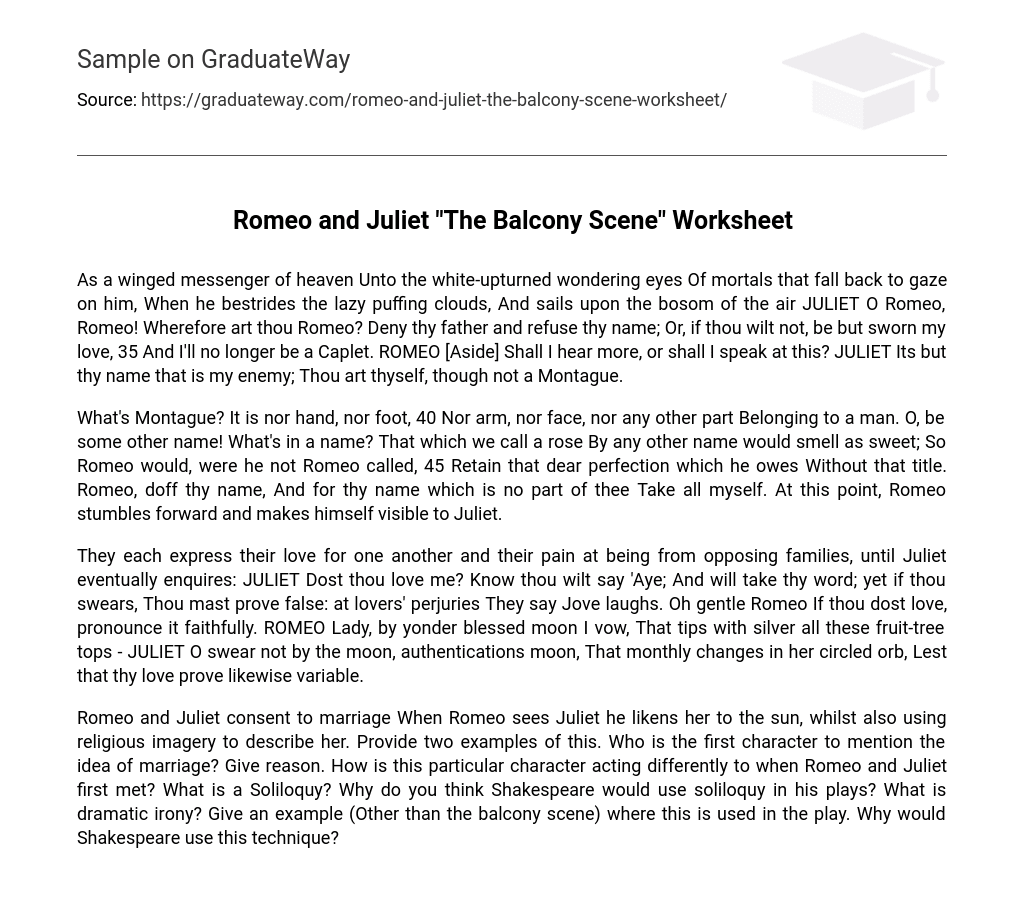As a winged messenger of heaven Unto the white-upturned wondering eyes Of mortals that fall back to gaze on him, When he bestrides the lazy puffing clouds, And sails upon the bosom of the air JULIET O Romeo, Romeo! Wherefore art thou Romeo? Deny thy father and refuse thy name; Or, if thou wilt not, be but sworn my love, 35 And I’ll no longer be a Caplet. ROMEO [Aside] Shall I hear more, or shall I speak at this? JULIET Its but thy name that is my enemy; Thou art thyself, though not a Montague.
What’s Montague? It is nor hand, nor foot, 40 Nor arm, nor face, nor any other part Belonging to a man. O, be some other name! What’s in a name? That which we call a rose By any other name would smell as sweet; So Romeo would, were he not Romeo called, 45 Retain that dear perfection which he owes Without that title. Romeo, doff thy name, And for thy name which is no part of thee Take all myself. At this point, Romeo stumbles forward and makes himself visible to Juliet.
They each express their love for one another and their pain at being from opposing families, until Juliet eventually enquires: JULIET Dost thou love me? Know thou wilt say ‘Aye; And will take thy word; yet if thou swears, Thou mast prove false: at lovers’ perjuries They say Jove laughs. Oh gentle Romeo If thou dost love, pronounce it faithfully. ROMEO Lady, by yonder blessed moon I vow, That tips with silver all these fruit-tree tops – JULIET O swear not by the moon, authentications moon, That monthly changes in her circled orb, Lest that thy love prove likewise variable.
Romeo and Juliet consent to marriage When Romeo sees Juliet he likens her to the sun, whilst also using religious imagery to describe her. Provide two examples of this. Who is the first character to mention the idea of marriage? Give reason. How is this particular character acting differently to when Romeo and Juliet first met? What is a Soliloquy? Why do you think Shakespeare would use soliloquy in his plays? What is dramatic irony? Give an example (Other than the balcony scene) where this is used in the play. Why would Shakespeare use this technique?





